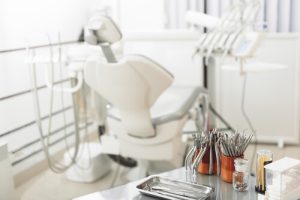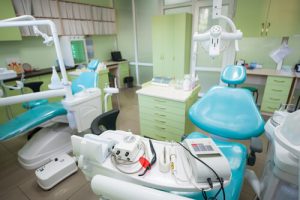In the specialised realm of dental equipment, the term screw compressor resonates with significance. While many are familiar with the broad applications of rotary screw air compressors in industrial settings, the dental screw compressor represents a fusion of precision engineering tailored for oral healthcare. But what sets this dental marvel apart from its counterparts, like the rotary screw compressor or the more traditional piston compressors?
And in a domain where the perfect balance between efficiency and low noise output is paramount, how does the dental screw compressor, with its distinct screw rotors, stand up to the task?
As we delve deeper, exploring the nuances between screw air compressors, air compressor technology, and their roles in various industrial applications, prepare for a captivating journey. This exploration promises technical insights and a comprehensive understanding of how pressurised air becomes an unsung hero in our dental care experiences.
What is the dental screw compressor
The dental screw compressor, an unsung hero in modern dentistry, is a specialised device designed to provide compressed air to power various dental tools and machinery. This compressor operates using two intertwined helical screws, or rotors, which, when rotated, draw in and compress air.
In dental healthcare, where precision and cleanliness are paramount, dental screw compressors stand out for their reliability, delivering consistent air pressure devoid of contaminants.
Their role, often behind the scenes, ensures that dental procedures, from simple cleanings to intricate surgeries, are executed seamlessly, upholding the highest standards of patient care.
What are dental screw compressors used for
While often tucked away from patients’ views, these specialised devices play an integral role in the seamless functioning of a dental clinic. Let’s delve deeper into the specific applications of dental screw compressors and why they are so essential.
Operative Dentistry Procedures:
The heart of any dental practice involves procedures ranging from fillings to crowns.
- Powering Dental Drills: The characteristic whir of the dentist’s drill is often powered by the compressed air supplied by the screw compressor.
- Water Spray Systems: Many dental procedures require a mist of water to cool down tools or clean areas, and the compressor ensures a consistent and reliable supply.
Dental Cleaning and Hygiene:
A regular visit to the dentist often includes a thorough cleaning.
- Ultrasonic Scalers: These tools, used to remove tartar and plaque, rely on the air pressure supplied by compressors.
- Air-Polishing: A method to remove stains and plaque using air, water, and fine powder, is effectively powered by the dental screw compressor.
Surgical Applications:
The compressor’s role becomes even more critical in more advanced dental procedures.
- Surgical Handpieces: These tools require a steady and reliable air supply for tooth extractions or implant placements.
- Aspiration Systems: During surgeries, it’s vital to keep the site clear of debris and fluids; aspiration systems powered by compressors do just that.
Patient Comfort and Miscellaneous Uses:
Beyond the primary procedures, dental screw compressors also cater to a complete range of auxiliary needs.
- Dental Chair Adjustments: Adjusting the incline or height of the chair for patient comfort is often facilitated by compressed air systems.
- Sterilisation Units: Keeping tools sterile is paramount, and some sterilisation equipment relies on the air from compressors.
Navigating the realm of dental healthcare, the significance of the dental rotary screw compressors and compressor becomes abundantly clear. It’s not just a piece of machinery but an embodiment of the precision and care dental professionals provide daily. As patients, while we might not see these rotary screw compressors in action, understanding their role adds a layer of appreciation for the intricate dance of technology and care that goes into maintaining our smiles.
What are the benefits of dental screw compressors?
 The machinery and tools employed play pivotal roles in dental healthcare, where precision meets patient care. Dental screw compressors might not be the star attraction, but they are the supporting pillars ensuring seamless operations. Their presence might be behind the scenes, but their benefits are front and centre.
The machinery and tools employed play pivotal roles in dental healthcare, where precision meets patient care. Dental screw compressors might not be the star attraction, but they are the supporting pillars ensuring seamless operations. Their presence might be behind the scenes, but their benefits are front and centre.
Let’s delve into the manifold advantages of dental screw compressors that make them indispensable in a modern dental setup.
Reliability and Consistency:
Every dental procedure demands unwavering consistency.
- Steady Air Supply: Dental screw compressors ensure a continuous and stable airflow, critical for tools like drills and scalers.
- Durable Design: Built for rigorous usage, these compressors are designed to withstand the demands of a busy dental clinic, ensuring longevity.
Compact and Quiet:
Considering the confined spaces of many dental clinics, size and noise matter.
- Space-Saving Design: Dental screw compressors are often compact, fitting seamlessly into clinics without consuming much space.
- Low Noise Levels: Ensuring a calm environment for patients and practitioners, these compressors operate quietly, minimising additional stress or anxiety.
Hygienic and Safe:
The compressor’s role is pivotal in a domain where cleanliness is a non-negotiable business.
- Oil-Free Operation: Most dental screw compressors are oil-free, eliminating the risk of oil contaminants and ensuring the air supplied is clean.
- Reduced Moisture Content: These compressors often come with an integrated dryer, reducing the moisture in the output air, which is essential for certain dental procedures.
Economic Benefits:
Beyond their functional benefits, dental screw compressors also offer economic advantages.
- Energy Efficiency: Designed for optimal performance, they often consume less power, translating to savings in energy bills.
- Lower Maintenance Costs: Given their robust build and fewer wear-prone parts, maintenance intervals are extended, reducing upkeep costs.
Navigating the meticulous world of dentistry, the benefits of dental screw compressors shine brightly, underscoring their value. They bridge the gap between technical efficiency, low cost, and optimal patient care. So, the next time you find yourself in the dentist’s chair, amidst the precision tools and serene ambience, know there’s a dental screw compressor working tirelessly, ensuring every procedure is executed flawlessly.
What are the types of dental screw compressors?
Amid the myriad tools and devices that come together to form the bedrock of modern dentistry, dental screw compressors stand out for their function and variety. While their primary role remains consistent, delivering compressed air precisely when and where needed, a spectrum of types is tailored to diverse dental settings. Let’s explore, spotlighting the distinct types of dental screw air compressors that power our dental care journeys.
Oil-Free Screw Compressors:
The champions of purity, these compressors take the forefront in many dental clinics.
- Hygienic Operations: By eliminating oil, these compressors guarantee that the air remains uncontaminated, which is vital in dental procedures.
- Minimal Maintenance: With no oil to change, upkeep becomes simpler and less frequent.
Silent Dental Screw Compressors:
In the calming environment of a dental clinic, noise control is of the essence.
- Reduced Noise Levels: These compressors are specially designed to operate with minimal sound, ensuring patient comfort.
- Ideal for Smaller Settings: Perfect for intimate clinic settings or mobile dental units where noise reduction is crucial.
Single-Stage and Multi-Stage Compressors:
Differing in their compression mechanisms, these two types cater to varied demands.
- Single-Stage: Ideal for smaller dental clinics, these compressors compress the air in one go, making them efficient for standard procedures.
- Multi-Stage: Reserved for larger dental hospitals or clinics with multiple chairs, these compressors process air through multiple stages, ensuring a consistent supply even under heavy demand.
Portable Dental Screw Compressors:
These compressors are invaluable for on-the-go dentistry or clinics with large volumes and space constraints.
- Mobility Advantage: Designed to be lightweight and compact, they can be moved easily, catering to mobile dental camps or emergency setups.
- Integrated Features: Despite their size, many portable models come equipped with drying systems and filters to ensure the air quality remains uncompromised.
Piston compressors
A piston compressor machine operates on a simple principle: a piston moves within a cylinder to compress the air. Several facets make these compressors a preferred choice for many:
- Versatility: Suited for various applications, from automotive workshops to industrial manufacturing sites.
- Efficiency: Capable of producing high pressures, making them ideal for tasks that demand a robust air supply.
- Design Variations: Available in single-stage for less intensive tasks and two-stage models for higher pressure requirements.
- Cost-Effective: Generally less expensive upfront than other compressors and, given their durability, offer long-term value.
- Compactness: Their design allows for easier integration into smaller spaces, which benefits businesses with spatial constraints.
Navigating the landscape of compressive tools, piston compressors remain a testament to enduring engineering, melding reliability with efficiency to meet many needs across common industries. Whether you’re delving into the realm of DIY or scaling the heights of industrial manufacturing, understanding the capabilities of piston compressors is invaluable.
Rotary screw air compressors
The dental rotary screw compressor is a technological marvel tailored specifically for the unique demands of dental clinics. Unlike piston compressors and their industrial counterparts, dental rotary screw compressors offer a plethora of advantages tailored for oral care settings:
- Consistent Air Supply: These compressors deliver a steady and uninterrupted airflow, ensuring dental tools operate seamlessly throughout procedures.
- Quiet Operation: Designed to reduce noise, they contribute to the serene ambience of dental clinics, helping alleviate patient anxiety.
- Compact Design: Given the often limited space of dental clinics, these compressors are engineered to be compact, integrating smoothly without overwhelming the workspace.
- Minimal Maintenance: With fewer moving parts than piston compressors, dental rotary screw models typically require less frequent maintenance.
- Efficiency: They are energy-efficient, ensuring optimal performance with less power consumption, a boon for clinics mindful of their environmental footprint.
Embarking on a journey through the nuances of dental equipment, the rotary screw compressor stands out as a beacon of modern innovation. Integrating such advanced tools as dentistry evolves ensures practitioners and patients benefit from smoother procedures and enhanced experiences.
Peeling back the layers of dental healthcare, it becomes evident that behind every immaculate procedure and every reassuring smile of a dentist, there’s a world of machinery and technology ensuring perfection. Among these, the varied types of dental screw compressors, each tailored to specific needs, are a testament to dentistry’s meticulous attention to detail. Whether you’re a practitioner, a patient, or simply a curious individual, these insights offer a fascinating glimpse into the intricacies of oral healthcare machinery.
How does dental screw air compressor work?

The dental screw air compressor emerges as a linchpin, silently ensuring seamless operations. But what underlies its functionality? How does this device transform ambient air into a powerful tool suitable for high speeds and dental procedures? Let’s demystify the workings of the dental screw air compressor.
- Intake of Ambient Air: Initially, the compressor draws in ambient air through its intake valves.
- Compression through Rotors: Inside, two helical rotors interlock. As they rotate in tandem, the air gets trapped between the rotor blades and the compressor casing, effectively compressing the air.
- Progressive Compression: The air, trapped between the screw threads, is progressively compressed as it moves along the length of the screws, culminating in a high-pressure zone at the outlet.
- Cooling Mechanism: Given that compression generates heat, dental screw compressors typically incorporate cooling systems to maintain optimal operating temperatures.
- Delivering Clean Air: Post-compression, the air often passes through integrated drying and filtration systems. This ensures that the delivered air is not only high-pressure but also clean and dry, which is essential for dental procedures.
- Regulated Output: The compressed air is then directed to various dental tools and machinery, with pressure regulators ensuring a consistent and appropriate air supply for each specific application.
The dance of mechanics and design within a dental screw air compressor is a testament to the advancements in dental technology. By understanding its workings, one gains a deeper appreciation for the confluence of engineering and healthcare that shapes our dental experiences.
Conclusion
In the dynamic realm of modern machinery, the screw compressor consistently stands out, marrying efficiency and variable speed with reliability. As industries evolve and demand shifts, this steadfast equipment continues to adapt, underpinning numerous applications and ensuring optimal performance. Whether you’re deep in the industrial sector or simply a curious mind, understanding the significance of the screw compressor is pivotal. So, as we navigate the ever-changing technological landscape, remember that the humble screw compressor remains a cornerstone, powering progress and shaping solutions.
If you want to elevate your dental practice with state-of-the-art equipment, there’s no better choice than a reliable dental screw compressor. Make sure to leave such a crucial component of your operations to chance. Reach out to the experts at Cattani Compressors Australia today. Dial (02) 8880 9257 and let us guide you towards the perfect compressor solution tailored to your needs. Your practice deserves the best, and we’re here to ensure you get it.
References
Screw Compressor
https://www.sciencedirect.com/topics/engineering/screw-compressor
Effect of Design Parameters on Oil-Flooded Screw
Compressor Performance
https://docs.lib.purdue.edu/cgi/viewcontent.cgi?article=1516&context=icec
Modeling and Manufacture of a PC-Type Single-Screw Compressor Rotor
https://www.researchgate.net/publication/271913631_Modeling_and_Manufacture_of_a_PC-Type_Single-Screw_Compressor_Rotor
Screw compressor for water vapor heat pump technology
https://heatpumpingtechnologies.org/annex58/wp-content/uploads/sites/70/2022/07/srmhthpannex58final.pdf



